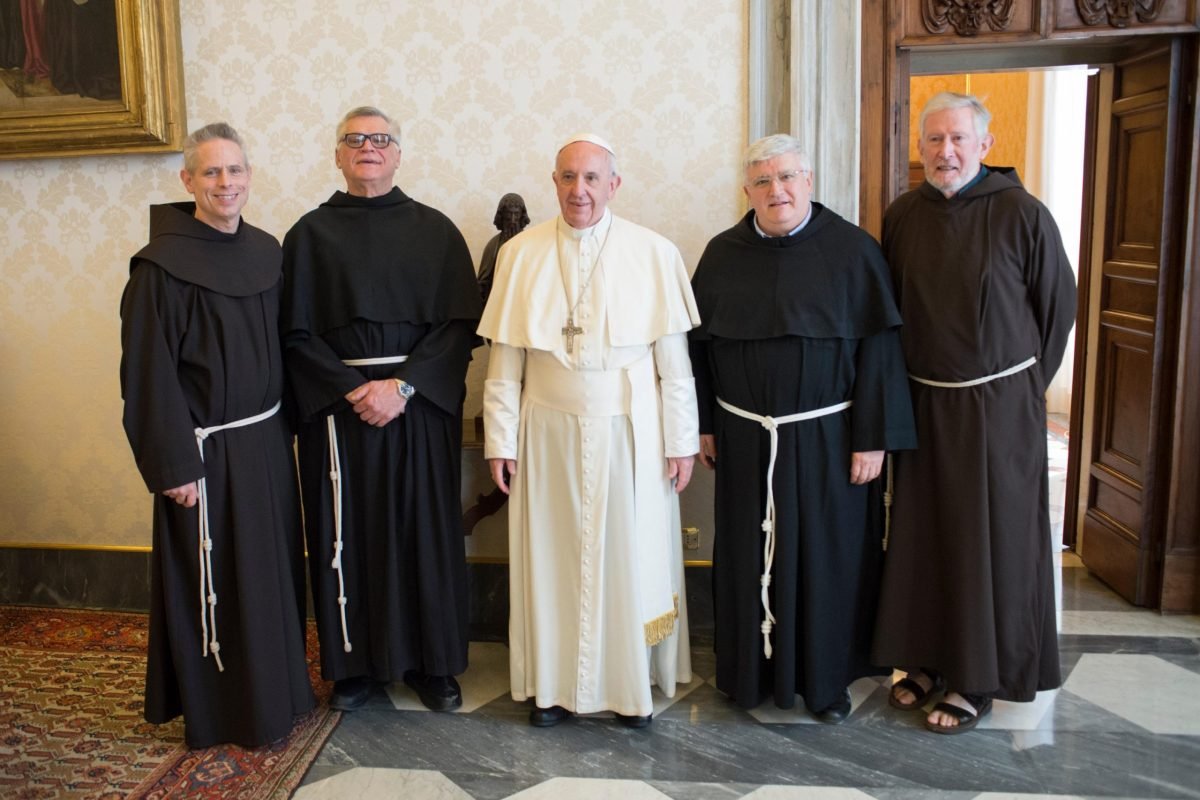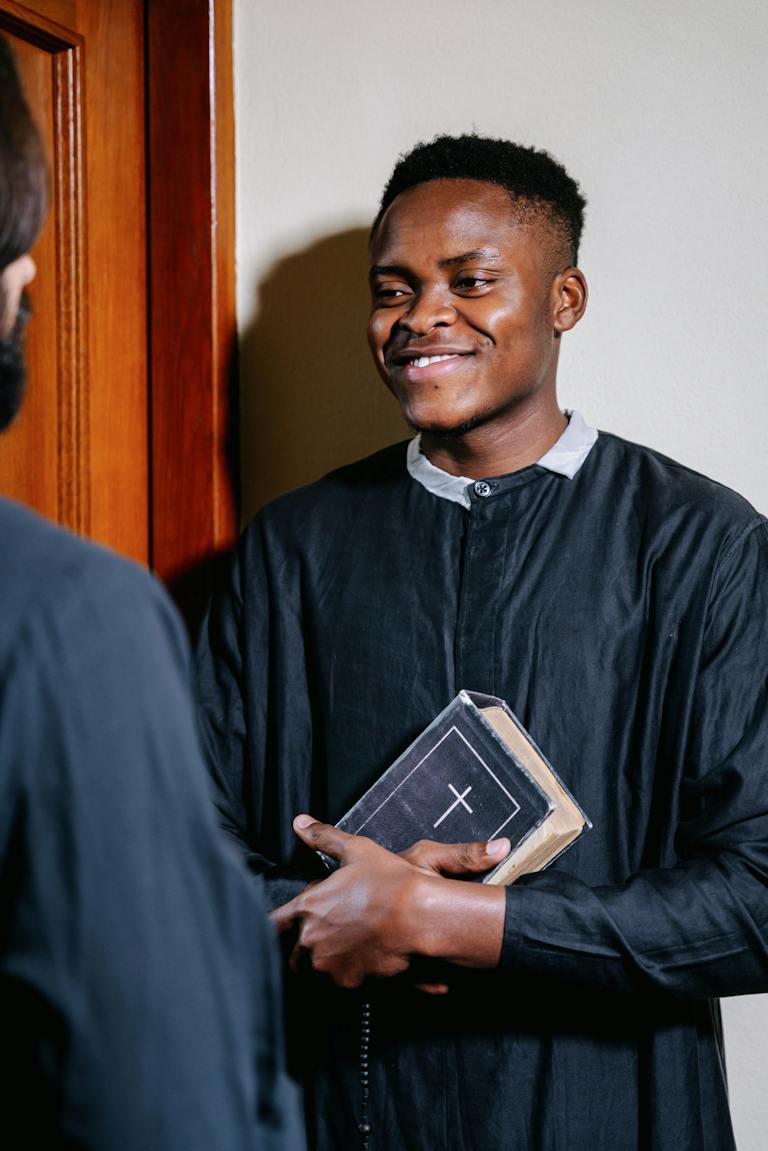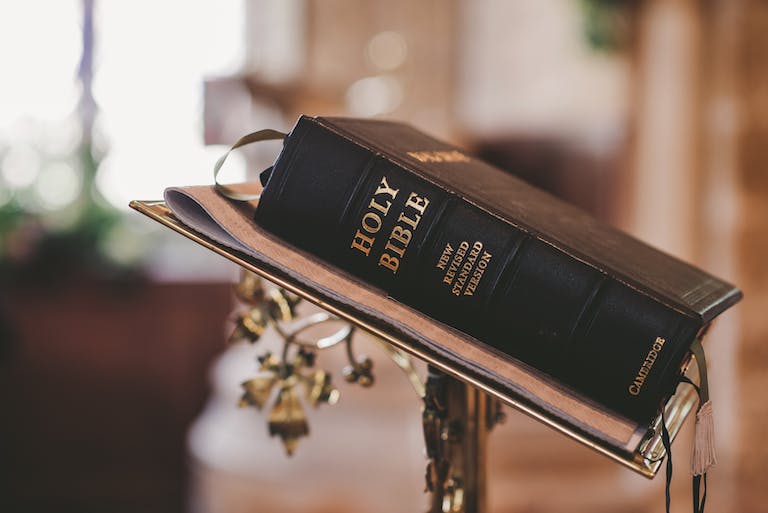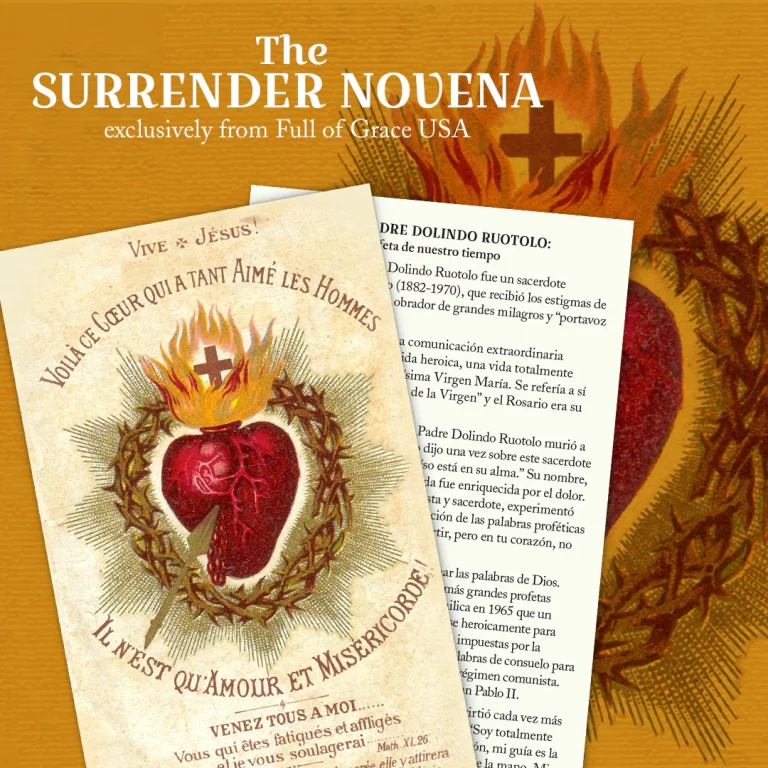What is a Brother in the Catholic Church?
A brother in the Catholic Church is a member of a religious institute or congregation who commits to living the evangelical counsels of poverty, chastity, and obedience. Brothers are not ordained into holy orders like priests but take vows and dedicate themselves to prayer, service, and other works.
History and Origins of Religious Brothers
The role of brothers originated early in the history of religious life. Groups of men chose to pursue a religious vocation focused on manual labor and good works rather than sacramental ministry. These communities of religious brothers existed in the early Church.
As time passed, rules developed to guide these groups. The most well-known is the Rule of St. Benedict, written in the 6th century for monks. Over the centuries, the model spread as more brotherhoods formed across religious orders like the Franciscans, Dominicans, and Jesuits.
Today, brothers remain an important part of Catholic religious life alongside nuns and priests. They live out their vocations in diverse ways while remaining grounded in prayer, community, and service.
Distinguishing Brothers from Priests and Monks
There are some key differences between brothers, priests, and monks in the Catholic Church.
Brothers vs. Priests
- Priests can administer sacraments like the Eucharist and Confession. Brothers focus on other vocations.
- Priests undergo extensive theological education and ordination. Brothers do not require ordination.
- Priests usually live and minister within a diocese. Brothers belong to religious communities.
Brothers vs. Monks
- Monks tend to live cloistered, contemplative lives within an abbey or monastery. Brothers are more engaged in active ministries.
- Monastic life tends to be more solitary. Brotherhood involves living in a religious community.
- Brothers take vows like monks but have additional flexibility to travel and minister outside their community.
So while priests, monks, and brothers have some overlap, brothers occupy a unique space in the church.
Common Ministries and Works of Brothers
Since brothers are not ordained priests, they engage in many other forms of ministry and service. Common works that brothers take up across religious communities include:
Teaching and Education
Operating and staffing schools is one of the major ministries brothers are known for. Many brotherhoods started schools to educate poor and marginalized groups. Today, brothers continue teaching children, running religious education programs, and working in universities.
The De La Salle Christian Brothers and Marist Brothers are two large teaching orders, while the Congregation of Christian Brothers is known for founding Ireland’s first national network of schools.
Healthcare and Social Services
Brothers have long cared for the sick by founding hospitals, clinics, and nursing homes and caring for those impacted by epidemics. The Alexian Brothers specialize in this, having begun in the Middle Ages tending to victims of the Plague. Today, brothers serve in many social service roles, supporting vulnerable groups.
Manual Labor and Trade Work
In the tradition of their earliest communities, some brothers continue to take up trades like carpentry, construction, agriculture, and maintenance. Rather than being cloistered religious, they work to support their communities.
The Trappist monks, for example, are well known for supporting their abbeys through goods like bread, furniture, clothing, and food like cheeses and jellies based on the work of the brothers.
Administrative Service and Support Roles
Many brothers take on administrative duties within their wider religious communities and the church itself. They use their skills in service by managing facilities and handling documentation, communications, and technology, while enabling other ministers to focus on pastoral care.
Missions and Evangelization Work
Some brotherhoods have a strong mission presence abroad. The Spanish St. John of God Brothers, for example, operate hospitals in Latin America. The Irish Christian Brothers established schools worldwide. Most brotherhood communities aim to spread the faith and serve local communities wherever their work takes them.
Best Known Brotherhoods
There are hundreds of international, national, and regional brotherhoods worldwide. Some of the largest and most influential include:
- De La Salle Christian Brothers: A major Catholic teaching order operating 1,000 educational institutions globally. Founded by St. John Baptist de la Salle in France in 1680.
- Marist Brothers: A global community with a strong educational presence spanning 82 countries. Founded by St. Marcellin Champagnat in France in 1817 to teach neglected country children.
- Franciscan Brothers: Part of the wider Franciscan order. Engaged in varied ministries of peacemaking, care for creation, and service alongside other Franciscans.
- Alexian Brothers: Founded in the 1300s in Germany known for caring for the sick. Today, health systems are across Germany, the United States, England, Ireland, and Mexico.
- Congregation of Christian Brothers (Ireland): Founded by Edmund Ignatius Rice in Ireland in 1802. Known for pioneering free education for poor boys and operating schools worldwide.
- Salesians of Don Bosco (SDB): Second largest men’s order globally operating thousands of schools and youth centers. Founded by St. John Bosco in 1859 in Italy to educate street children.
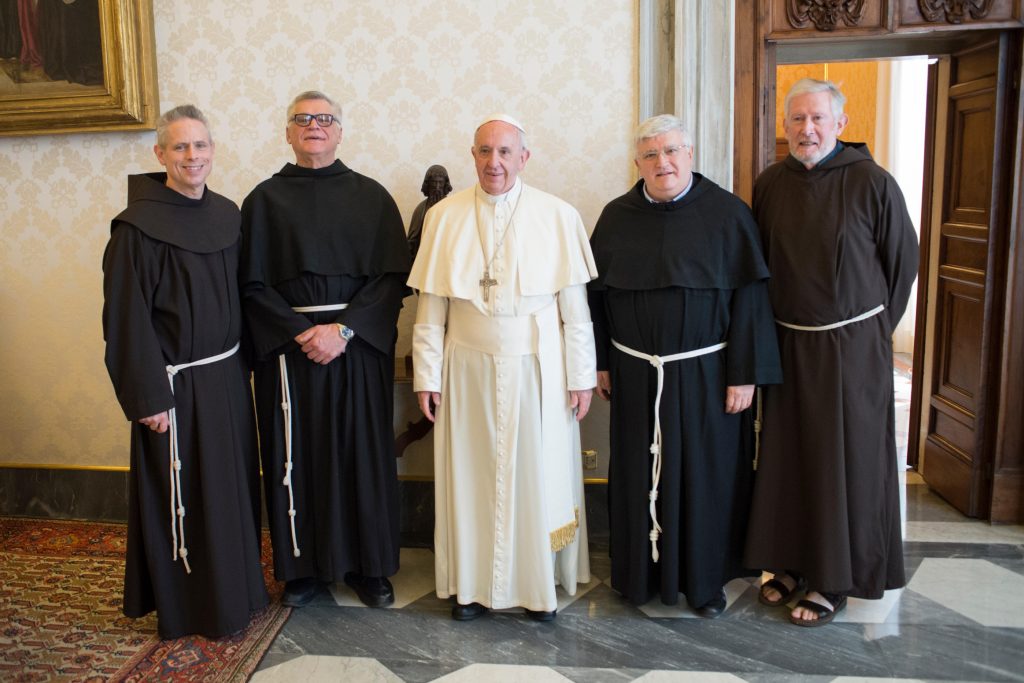
Requirements to Become a Brother
Since brothers are not ordained priests, the process differs from typical seminary formation. But across all communities, interested candidates generally go through the following process:
Discernment and Application
First is a period of prayer, discernment, and dialogue with a religious community you feel drawn to about their specific charisms, works, and community life. If both agree to proceed, you then submit a formal application.
Postulancy and Novitiate
After acceptance, the postulancy stage lasts 6-12 months and allows you to live in the community and experience your life before fully committing. The novitiate phase which follows usually lasts 1-2 years and involves more intensive prayer, study, and integration into the community to confirm your vocation.
Temporary and Final Vows
After completing the novitiate, you take temporary annual vows of poverty, chastity, and obedience which can renewed. After 3-6 years, you can request to take your final, perpetual vows and be fully incorporated into the brotherhood.
Spiritual Life and Vows of Brothers
Brotherhood life revolves around living the evangelical counsels fully as professed religious. This shapes their entire way of life in the community.
Poverty
Brothers renounce personal possessions and wealth. Necessities are provided by the community according to need. Surplus income also goes to the community. This witnesses radical dependence on God’s providence.
Chastity
Celibacy frees brothers to love unreservedly. They enter a spiritual marriage with Christ reflected through their religious community. This points to the ultimate union with God all are called to.
Obedience
Obeying superiors enables dying to self-will to prioritize God’s will. Superiors in turn pledge to command only justly for the member’s growth. Obedience helps brothers develop humility.
Conclusion
Despite declining numbers, brothers continue bringing value to the Church through diverse vocations. By combining active ministry rooted in prayer and living in evangelical poverty, chastity, and obedience, brothers offer an important witness. Their communal life and service provide meaning while filling essential roles—especially benefiting greater society’s marginalized. Whether in traditional ministries like education and healthcare or reimagined new forms of service, brothers serve a vital part in the wider Body of Christ.

